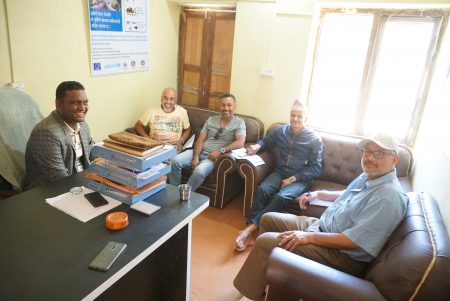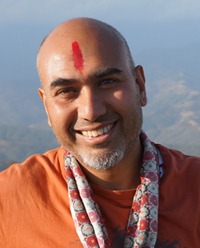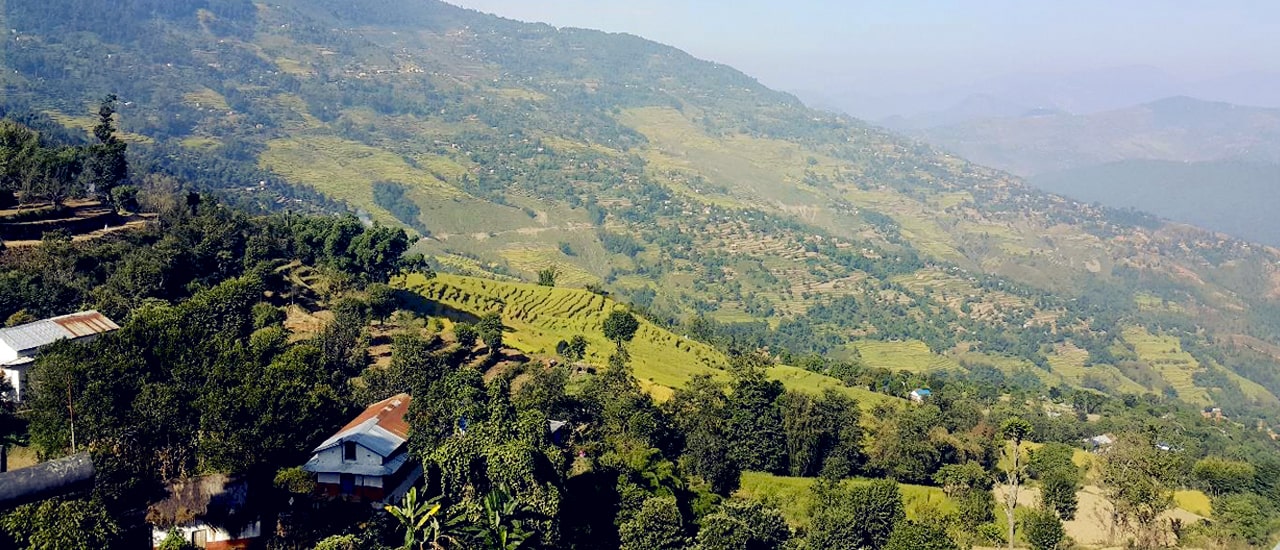Lack of an affordable and accessible community healthcare is a challenge in rural communities across the globe, and an obstacle in ensuring a healthy population in remote indigenous communities across rural Nepal. Broadband connectivity is opening the door to more accessible and cost-effective patient care by speeding up electronic health records and digital images and increasing mobility with wireless monitoring devices.
This story takes place in Dullu, a place extremely difficult to reach, located in the Dailekh District in mid-western Nepal. In order to reach the area, you need to fly from Kathmandu to Surkhet via a domestic flight and then take an off-road, four-wheel drive across approximately 80 kilometers, many of which are through a mountainous dirt road that remains challenging for both visitors and locals. Despite being fertile land filled with culture and history, Dullu is far behind in the development process and it is still struggling in terms of infrastructure development, including road access, robust communication, and proper health and education services.
The town’s solitary hospital is perpetually understaffed. Budget cuts, inhospitable winters, and lack of medical resources have perennially plagued medical service deliveries to the approximately 45,000 residents who depend on a distant health center.
The Internet Society Nepal Chapter, in collaboration with the Center for Information and Communication Technology for Development (ICT4D) and the support of the Beyond the Net Funding Programme, are leading “Effective Broadband for Health” a pilot program that will revolutionize Dullu’s rural community healthcare delivery and management.

From left to right: Ghanshyam Bhandari, Dullu Municipality; Pavan Shakya; Gyanendra Maharjan (Managing Director, InSyst Pvt. Ltd.); Tej Raj Sharma, Chief Administrative Officer, Dullu Municipality; and Abhimanyu Pandey (ICT4D)
After propagating the Internet signal from Surkhet to reach Dullu, the project equipped the hospital’s community healthcare system with two multiservice portable health kits. The health kits had been tested on 50 patients by storing their records and allowing medical personnel to remotely track their diagnoses, prognoses, and recovery progress. The team has also developed an application to enable the Dullu Municipality to update and archive digital data of houses and lands. The Building Permit Record Management System (BPRMS) has been implemented in 13 Ward Offices and 1,000 buildings have been recorded.
 “A community healthcare system underpinned by a robust, high-speed Internet access for these communities is the only lifeline.” Explains Pavan Singh Shakya, Executive Director of ICT4D and project manager. “Farming and an emerging tourist industry are the main commercial activities in Dullu. Both industries will be highly dependent on connectivity and data in the coming years. With a growing population base, Dullu must be embraced by broadband communication networks to facilitate telemedicine, distance learning, and modern tourism.”
“A community healthcare system underpinned by a robust, high-speed Internet access for these communities is the only lifeline.” Explains Pavan Singh Shakya, Executive Director of ICT4D and project manager. “Farming and an emerging tourist industry are the main commercial activities in Dullu. Both industries will be highly dependent on connectivity and data in the coming years. With a growing population base, Dullu must be embraced by broadband communication networks to facilitate telemedicine, distance learning, and modern tourism.”
What led to this project?
In Nepal, the state of neglected infrastructure worsened during the two-decade long conflict and the subsequent conflict resolution phases. Remote regions have been left behind despite the Internet boom, especially in Dullu where healthcare services are difficult to reach. Local walking trails are inaccessible during the rainy season, and winters are harsh for the average three-day journey to the sole hospital, which usually involves a rudimentary homemade medical stretcher. Many villagers live 2-3 days of walking distance from the main hospital.
How is the project helping the Dullu’s community?
The project established a wireless broadband service and provided telemedicine solutions to the remote villages, additionally developing the infrastructure and creating a proper information system related to public health services. After many months of survey and interaction with different vendors, the team identified a portable healthcare product that allows care providers to perform comprehensive exams and enable doctors to remotely make quality diagnosis and treatment decisions. The product is equipped with basic diagnostic tools to capture data over a Bluetooth connection and send that data to medical specialists at the Dhulikhel Hospital (approximately 700 kilometers). This allows them to review each case and provide feedback to the local medical team.
Did you integrate sustainability in your project?
We believe this project will pave the way to rural broadband communication systems in the future. The long-term prospects of this project are extremely positive and will ensure its sustainability, since the entire community is invited to be part of the inception, implementation, management, and finally the full ownership. The Internet presents possibilities, progress, and consequently must be inclusive, for a truly democratic and equal opportunity society.
I wish to acknowledge Pavan Singh Shakya and all of the ICT4D team members who greatly assisted me in writing this article through their insight and expertise.
We’re looking for new ideas from people all over the world on how you can empower your community using the Internet. The Beyond the Net Funding Programme funds projects up to $30,000.00.

